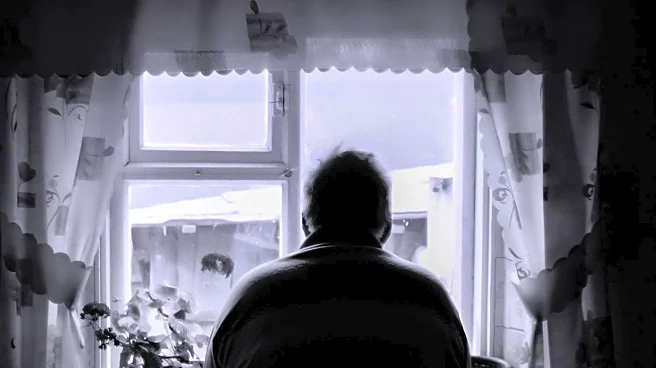What's Happening?
A study published in The Lancet Psychiatry has found that antipsychotic drugs are being prescribed to dementia patients outside of the guidelines set by the National Institute of Health and Care Excellence (NICE). The retrospective cohort study analyzed data from 9,819 dementia patients who received their first antipsychotic prescription between 2000 and 2023. It revealed that patients were prescribed these medications for a median of seven months, exceeding NICE's recommended duration of one to three months. Additionally, 18.1% of patients were initiated on doses above the minimum effective level. The study highlights concerns about the prolonged use and higher doses of antipsychotics, which could lead to avoidable harms such as mortality, stroke, and pneumonia.
Why It's Important?
The findings raise significant concerns about the safety and efficacy of antipsychotic prescribing practices for dementia patients. Deviations from NICE guidelines suggest a need for stronger systems to ensure safer prescribing, including regular medication reviews and greater oversight. The study underscores the importance of psychosocial interventions as alternatives to medication, which could improve patient care and reduce reliance on antipsychotics. This issue is critical as it affects the well-being of dementia patients and highlights the need for healthcare providers to adhere to established guidelines to prevent potential adverse effects.
Beyond the Headlines
The study's results suggest that despite policy efforts, antipsychotic prescribing practices have not significantly changed, indicating a gap between guidelines and clinical practice. This calls for a reevaluation of current systems and increased investment in non-drug therapies. The persistence of these prescribing patterns may reflect broader challenges in dementia care, including the need for more comprehensive approaches that prioritize patient-centered care and holistic treatment options.












